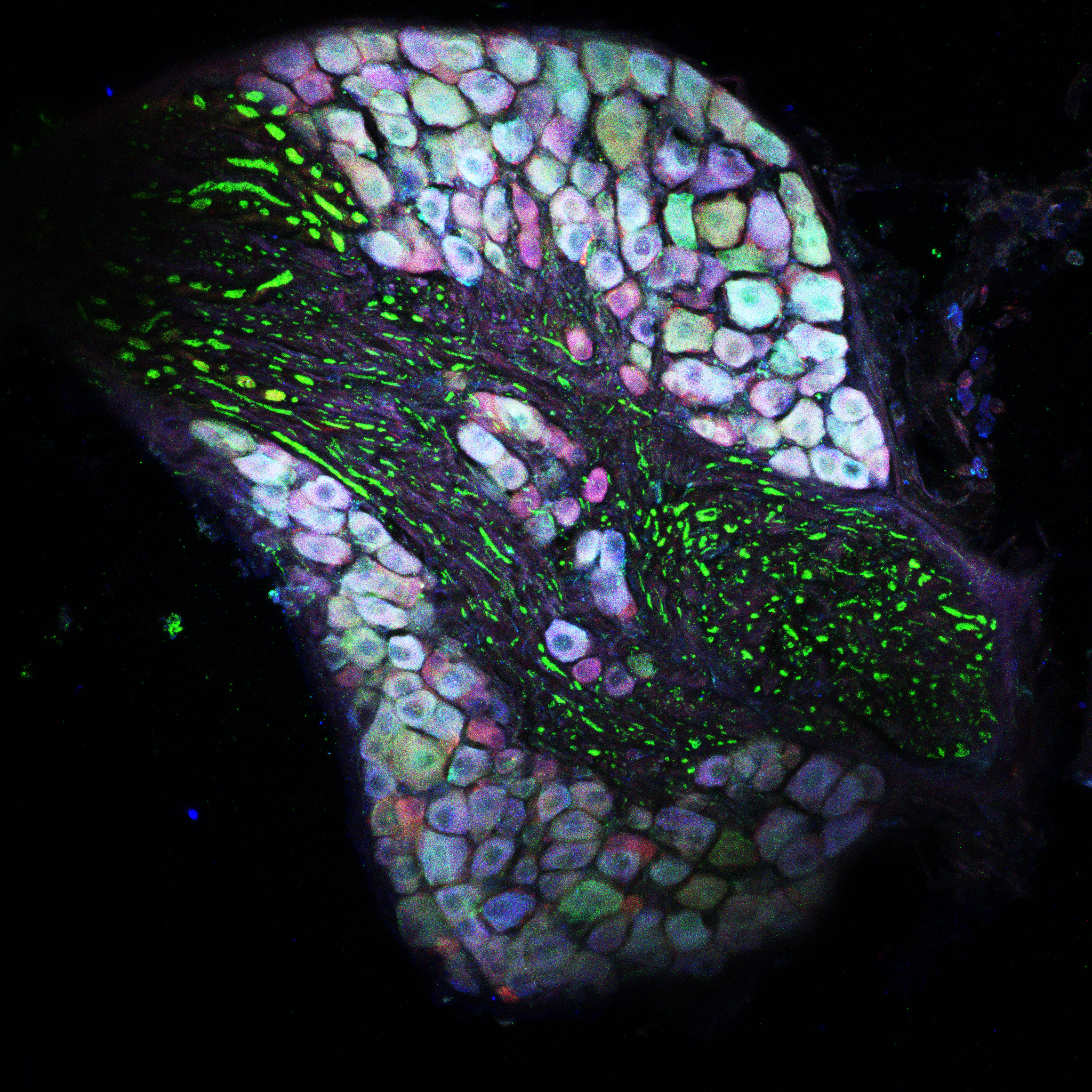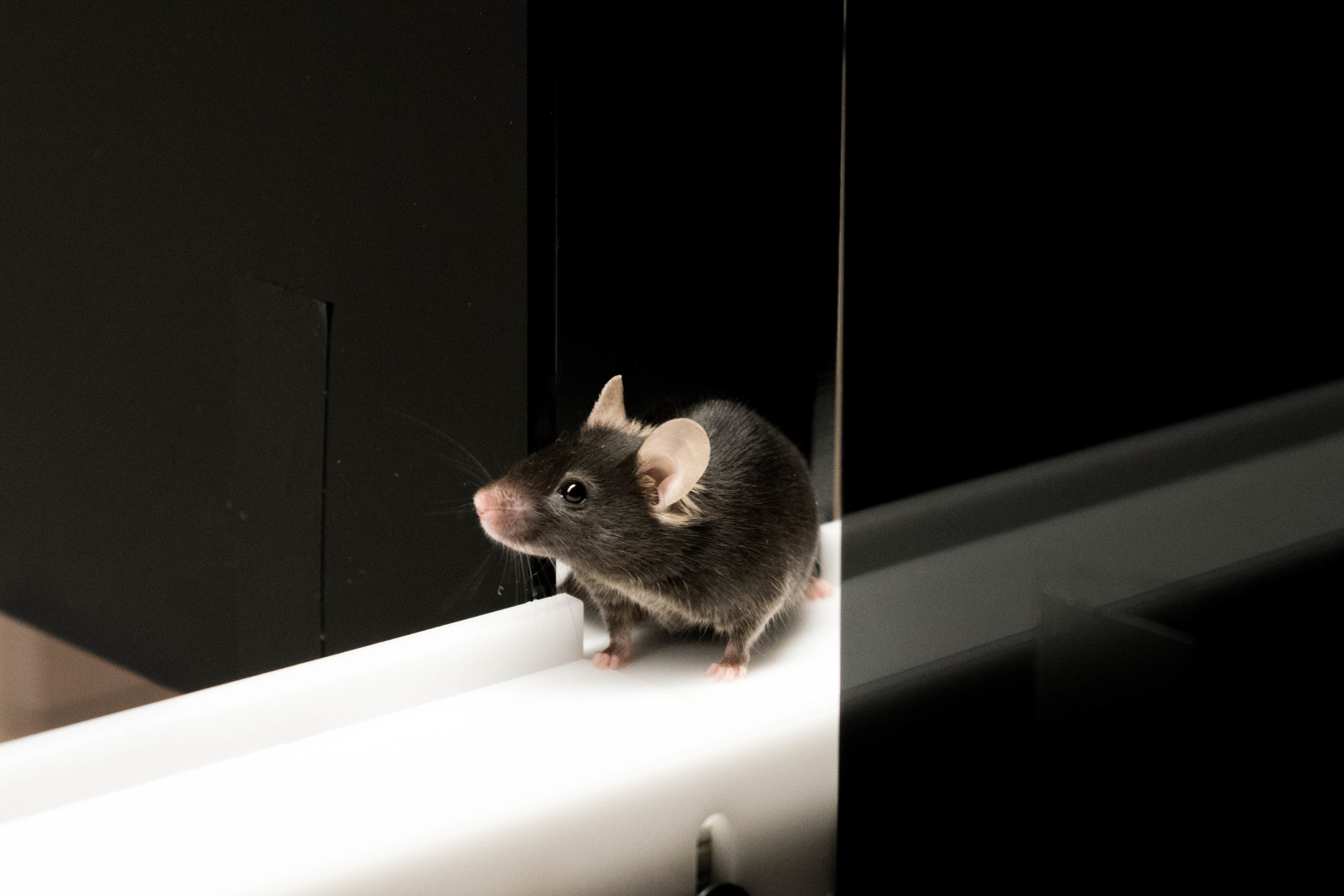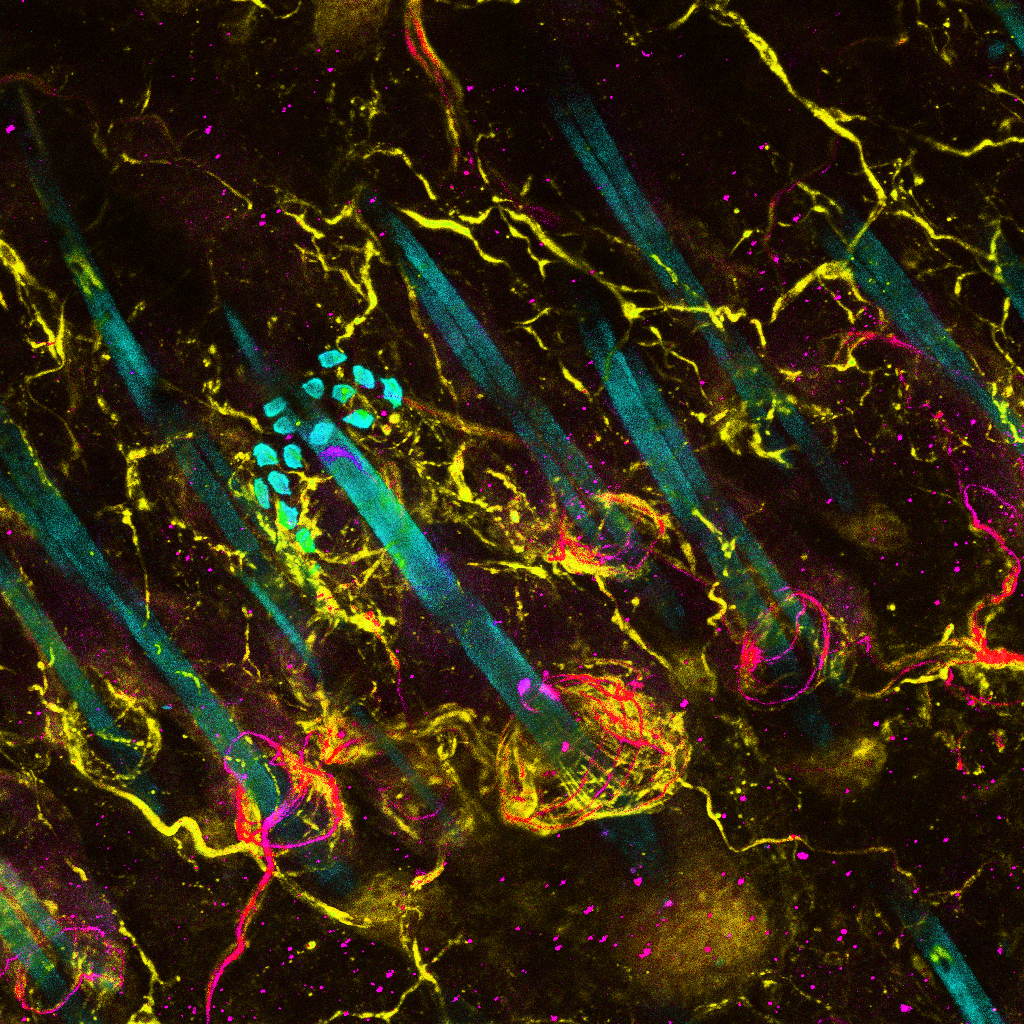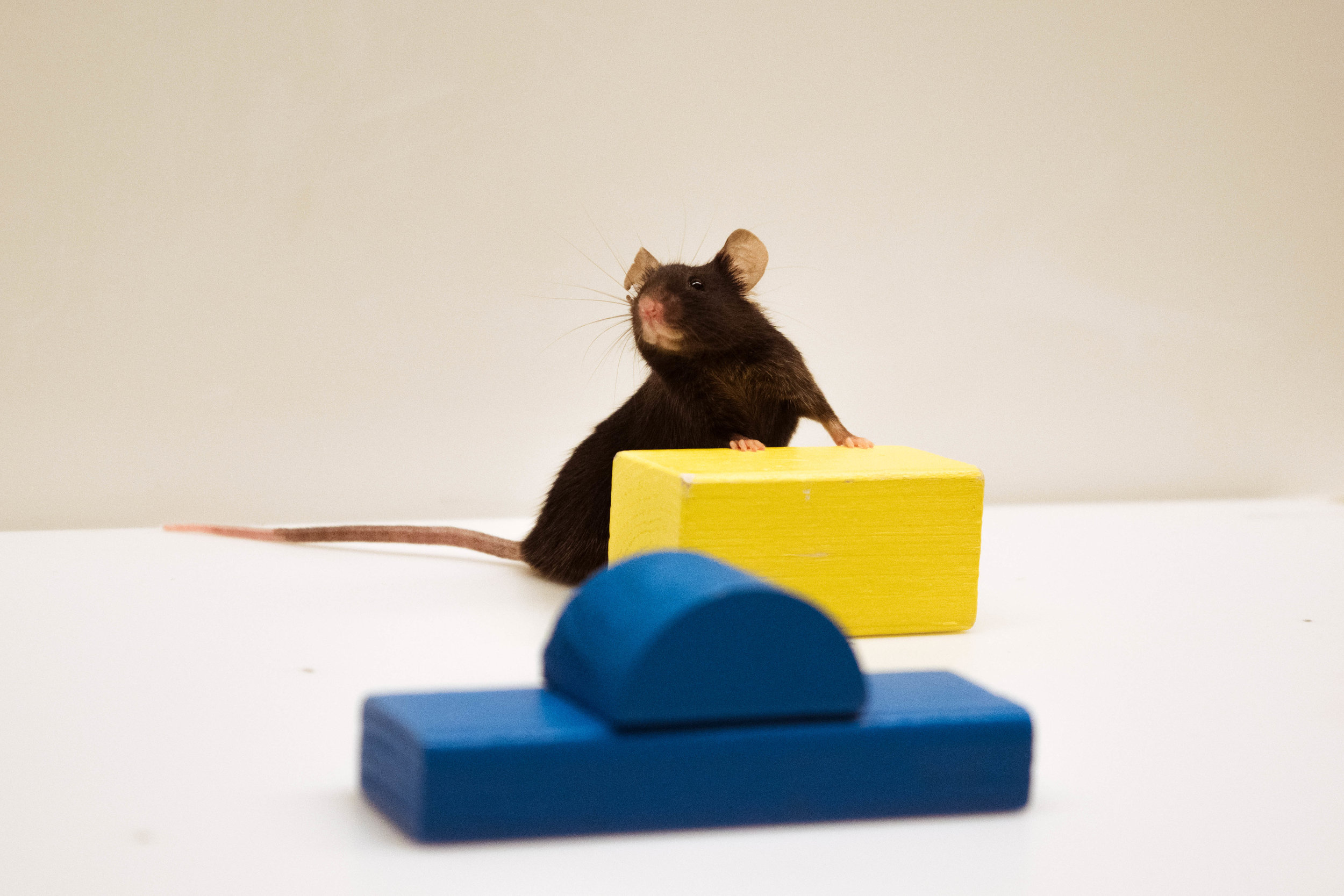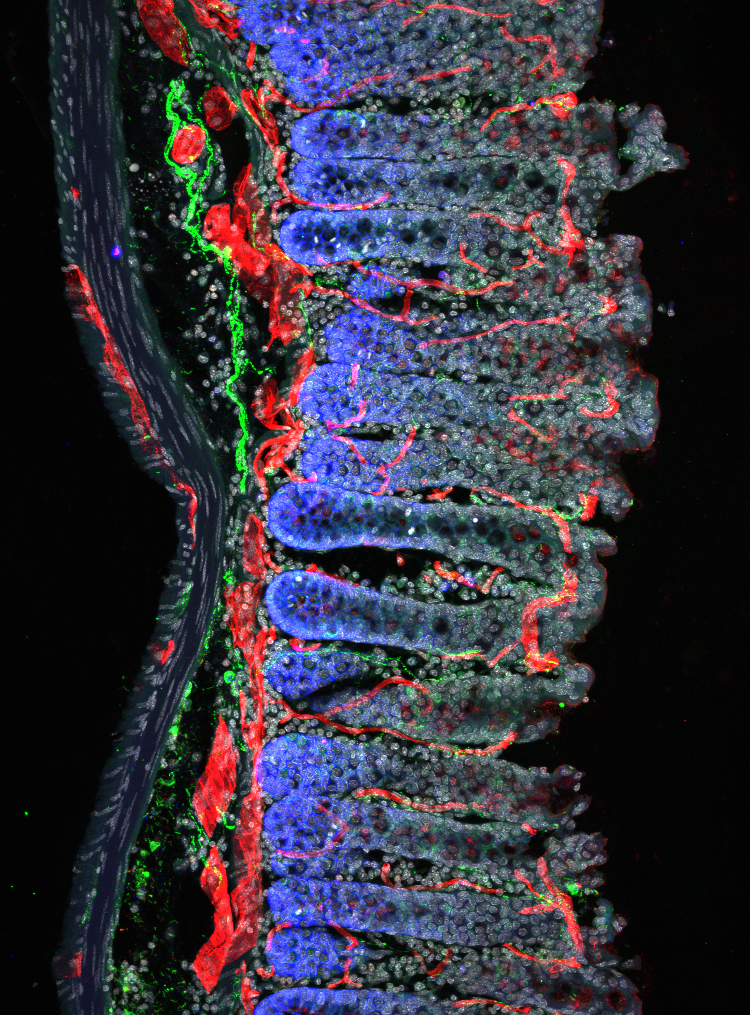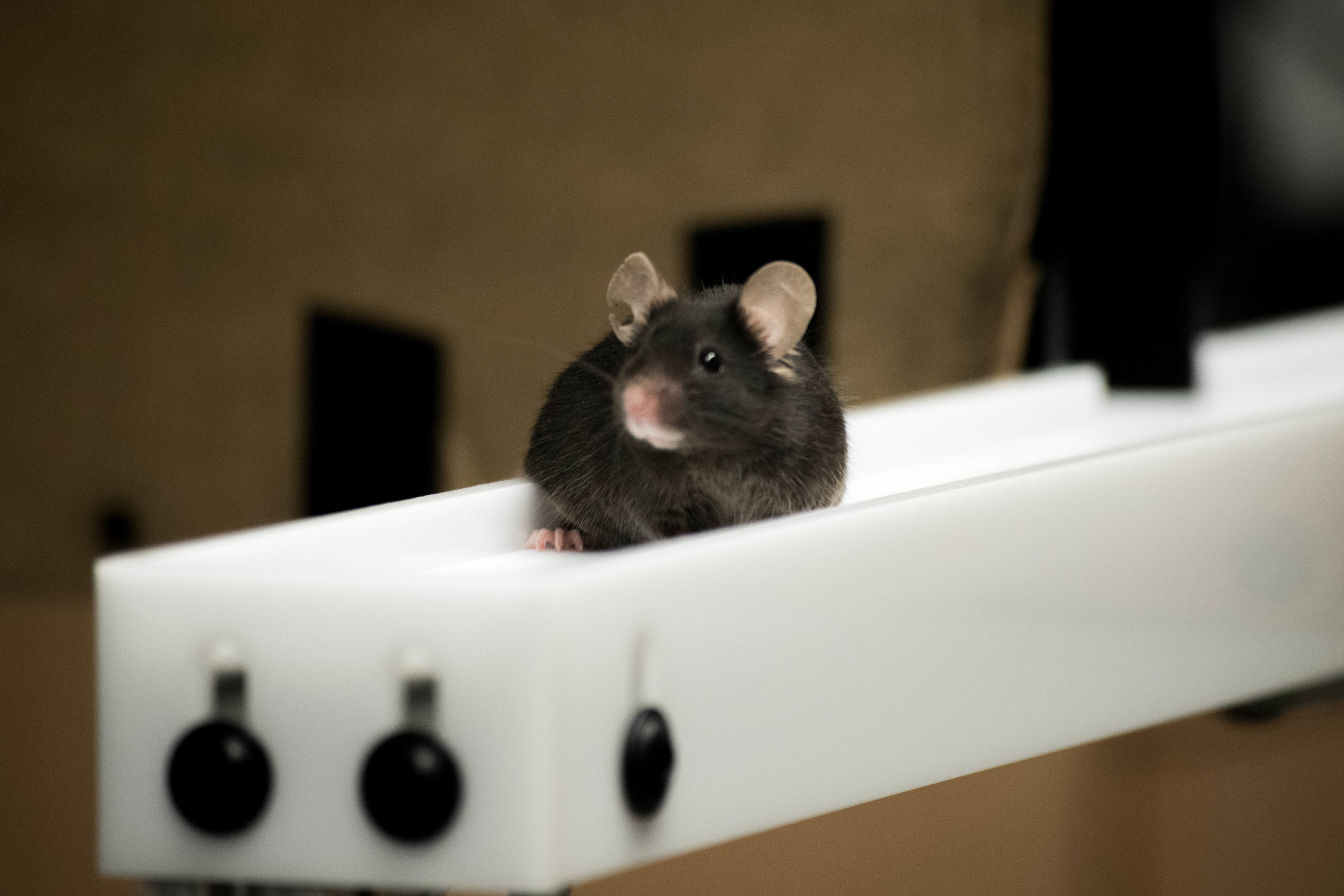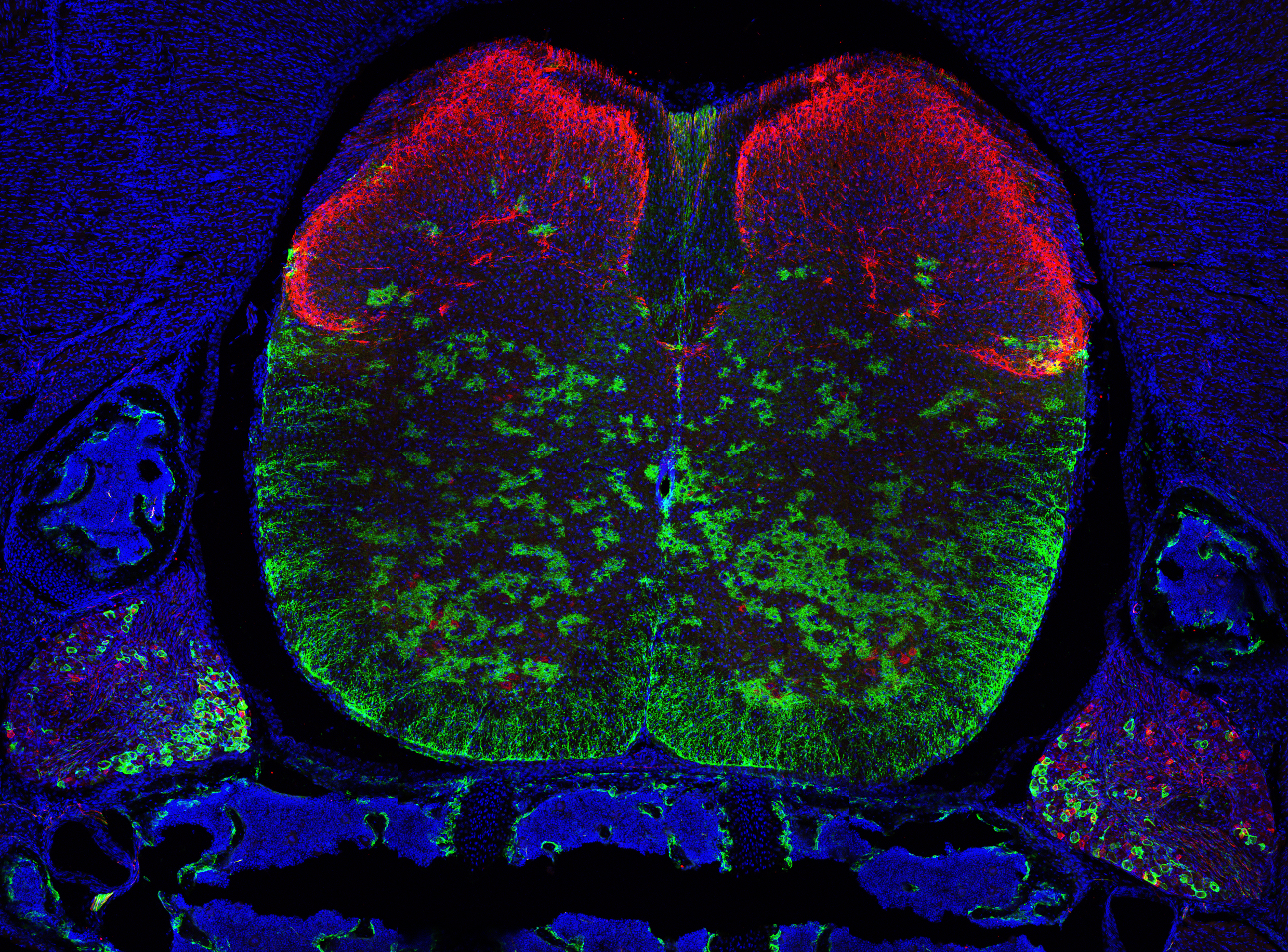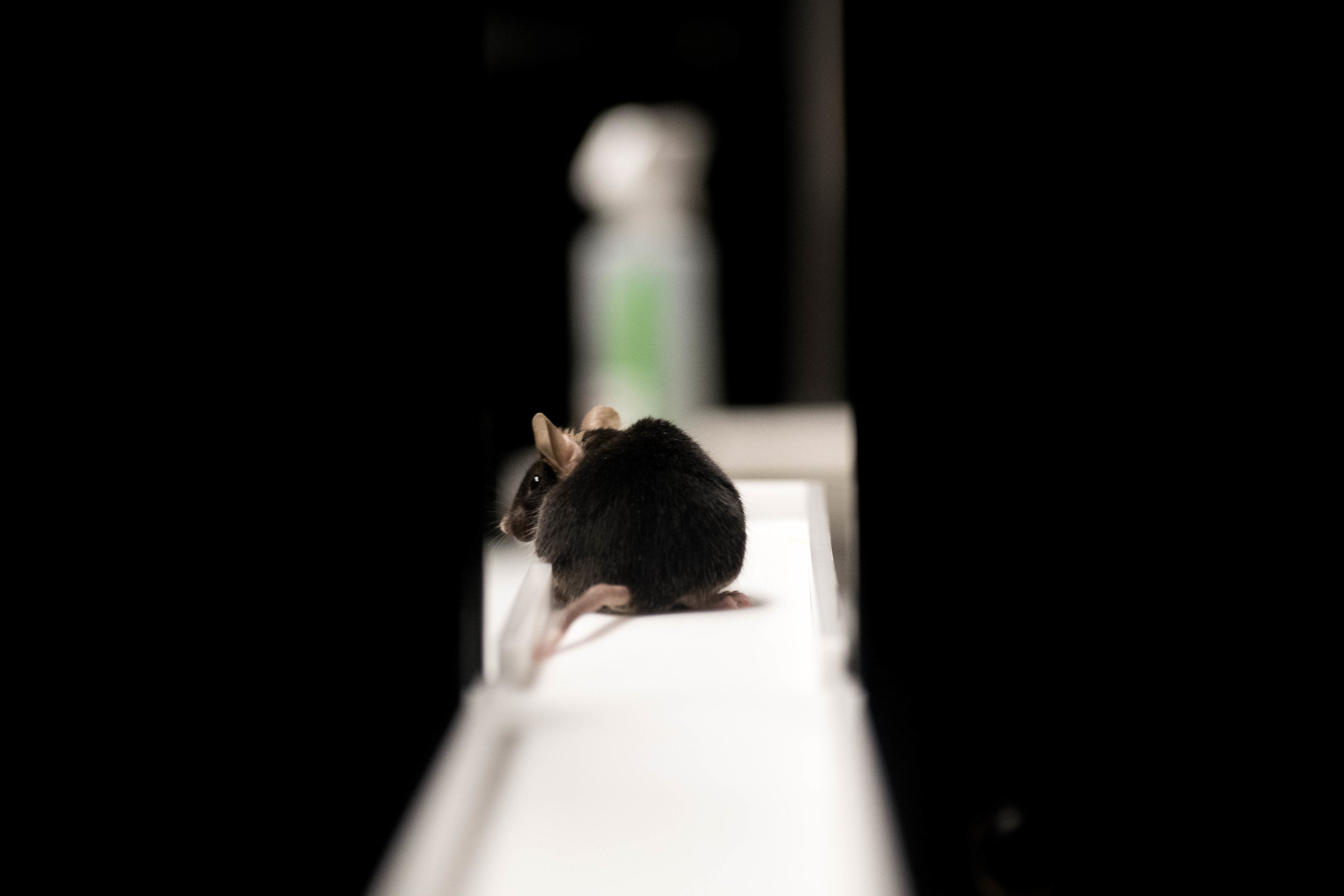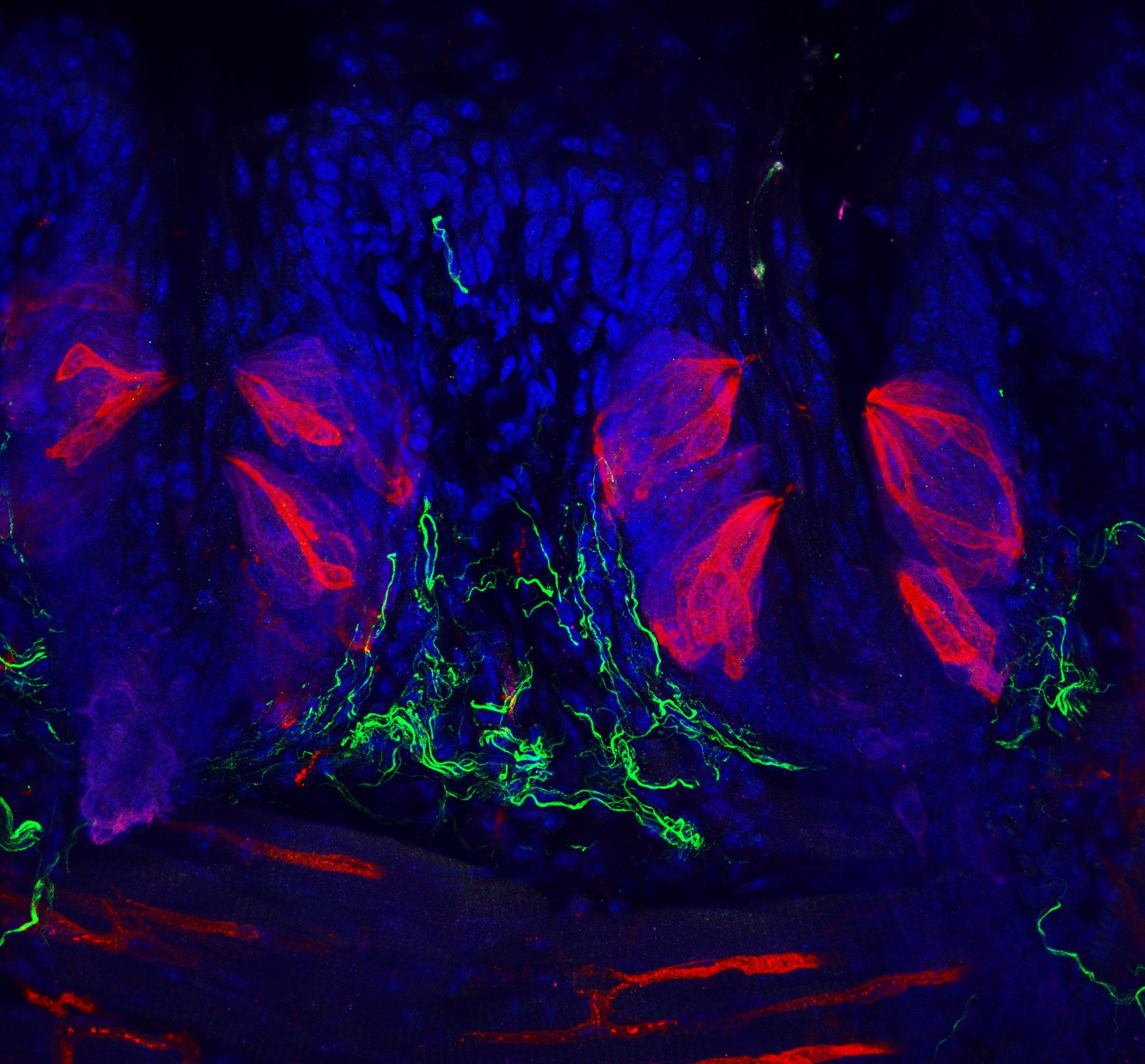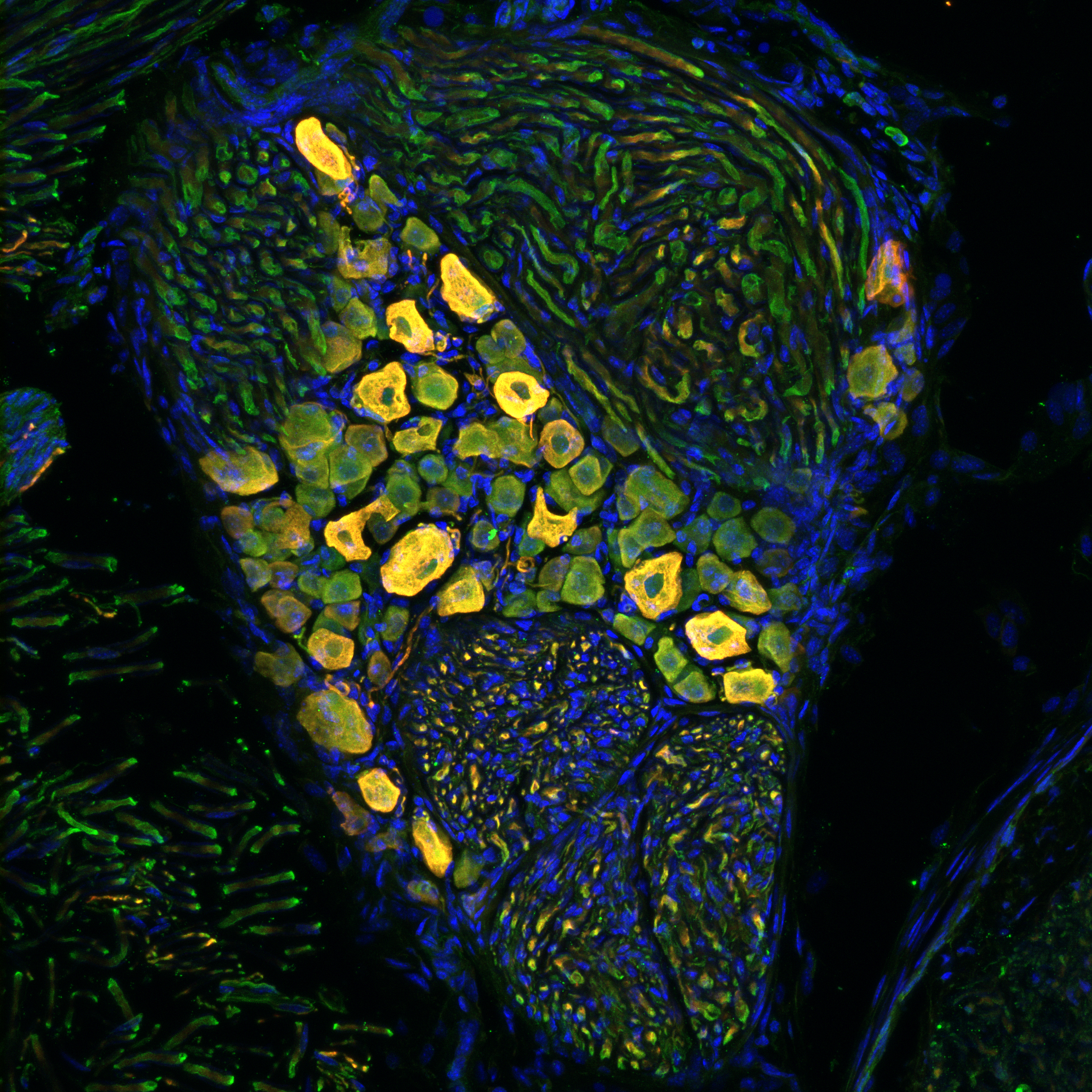Our Research
Development, function, and dysfunction of somatosensory and viscerosensory circuits
Our lab studies the somatosensory and viscerosensory circuits that mediate the sense of touch and sensations from the gastrointestinal system, respectively. We are interested in how sensory experience, beginning with peripheral sensory neurons, influences the development of circuits in the spinal cord and brain. A central tenet of our work is that variations in sensory sensitivity and experience between individuals, in particular due to genetic differences, contribute to the heterogeneity of individuals’ cognitive and social behaviors.
We have found that genetic mutations or alterations in peripheral sensory neuron function contribute to multiple symptoms observed in mouse models of autism spectrum disorder (ASD). The selective modulation of these neurons can improve ASD-related symptoms. Our research program combines genetics, anatomy, in vivo and in vitro electrophysiology, imaging, transcriptomics, and behavior in mice, as well as studies of human-derived neurons.


